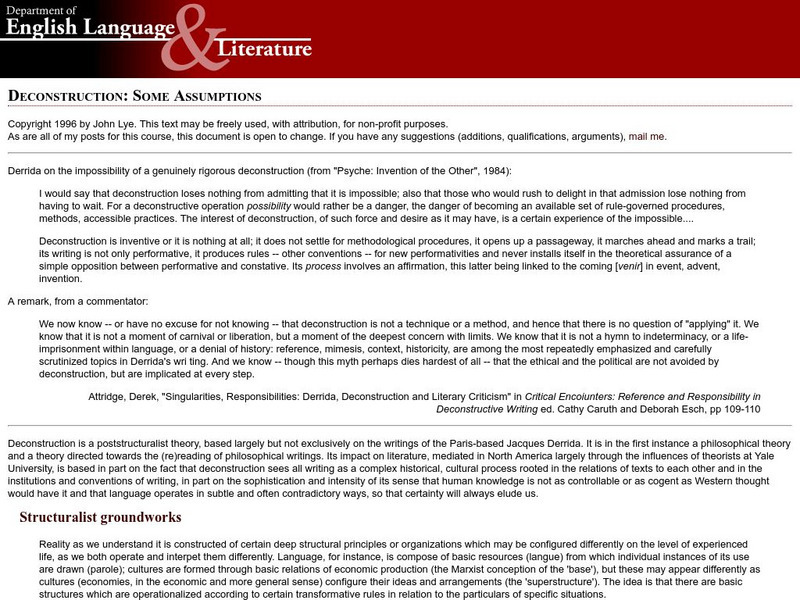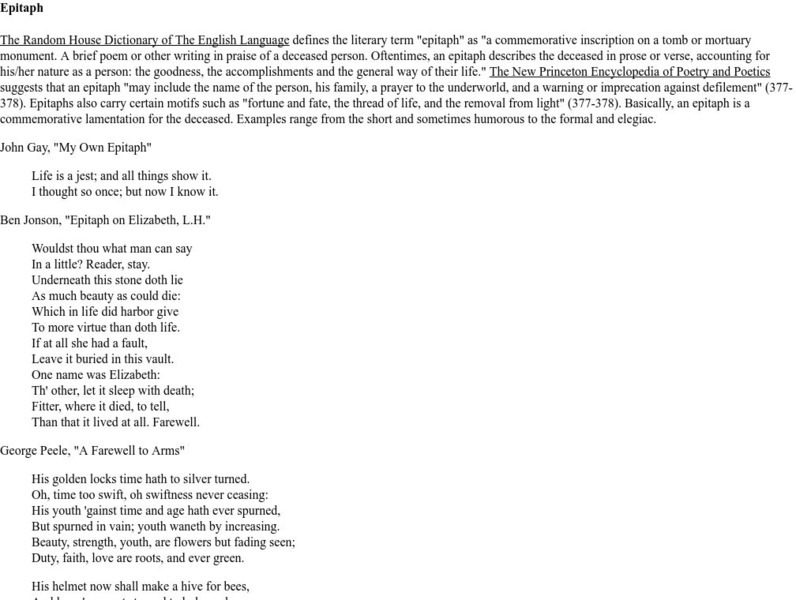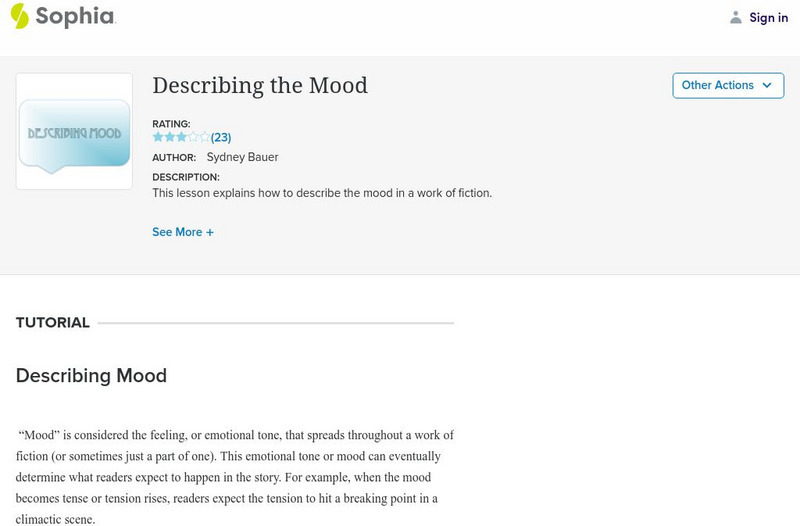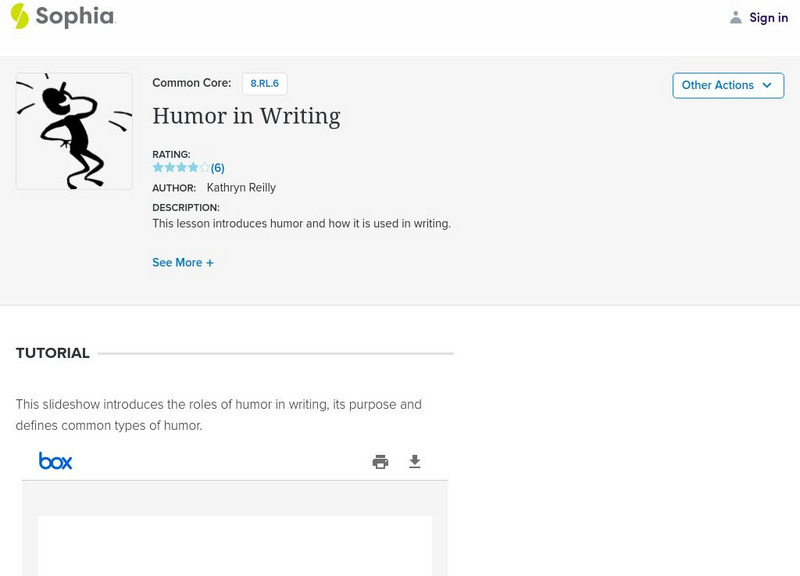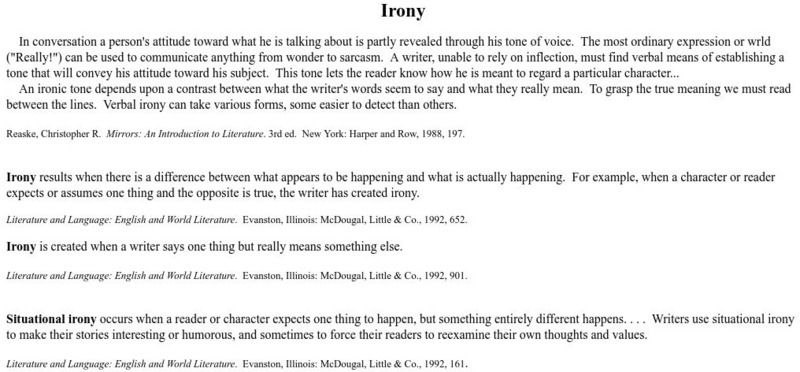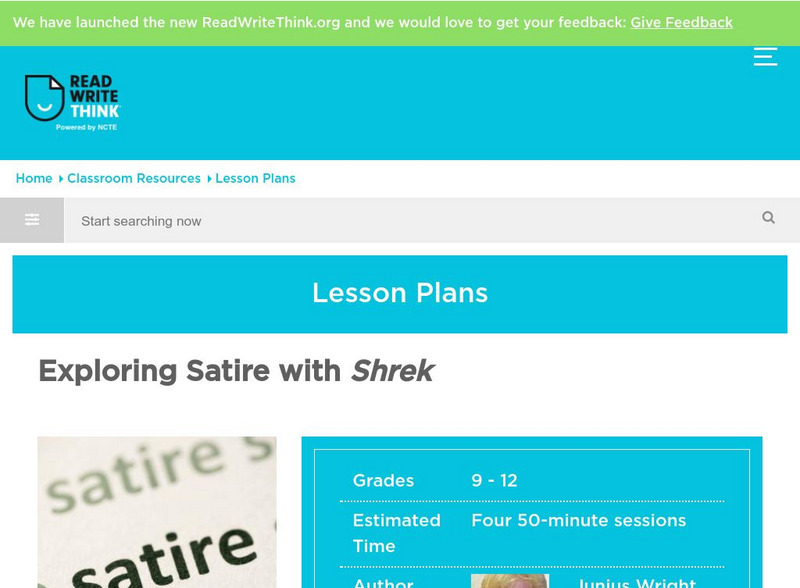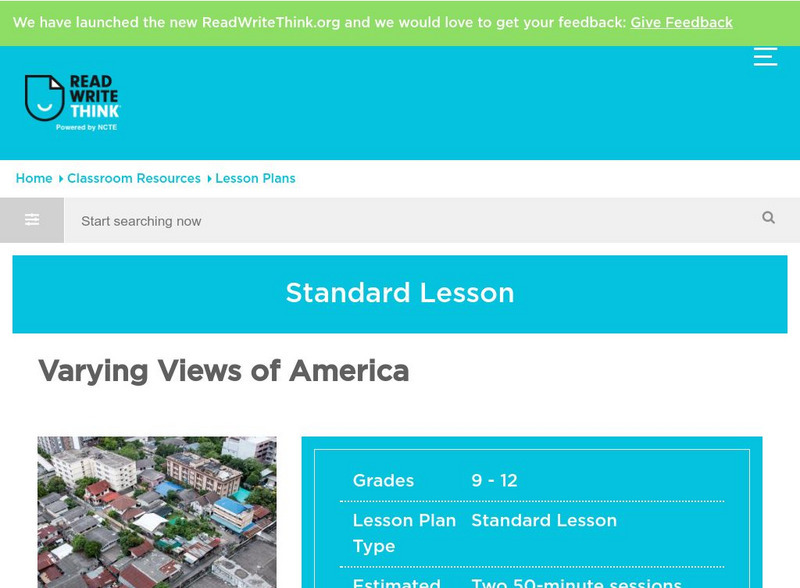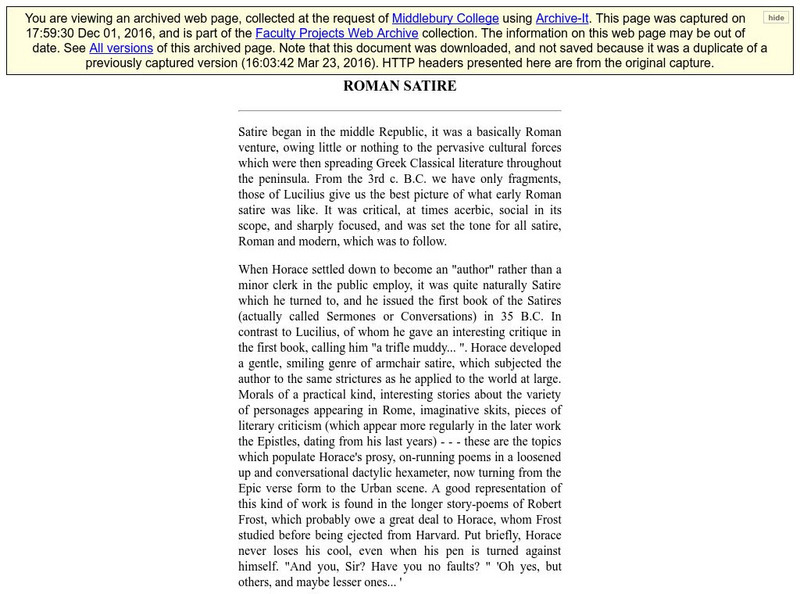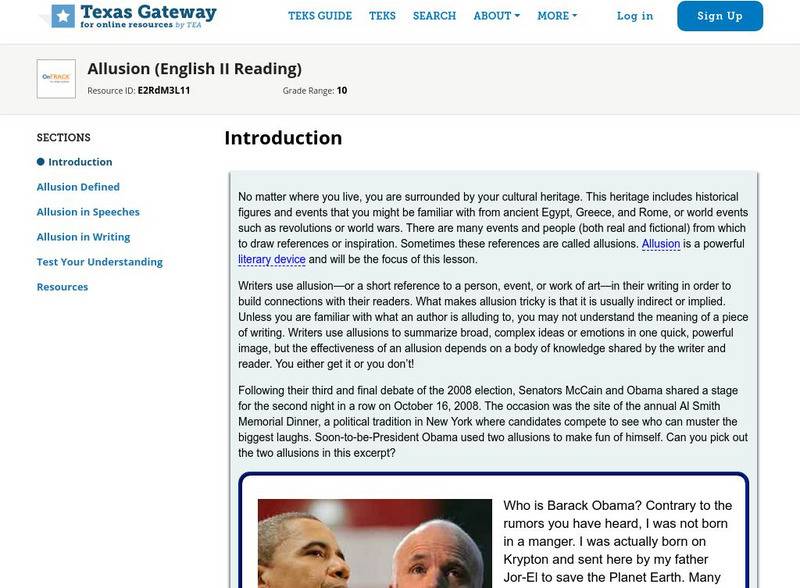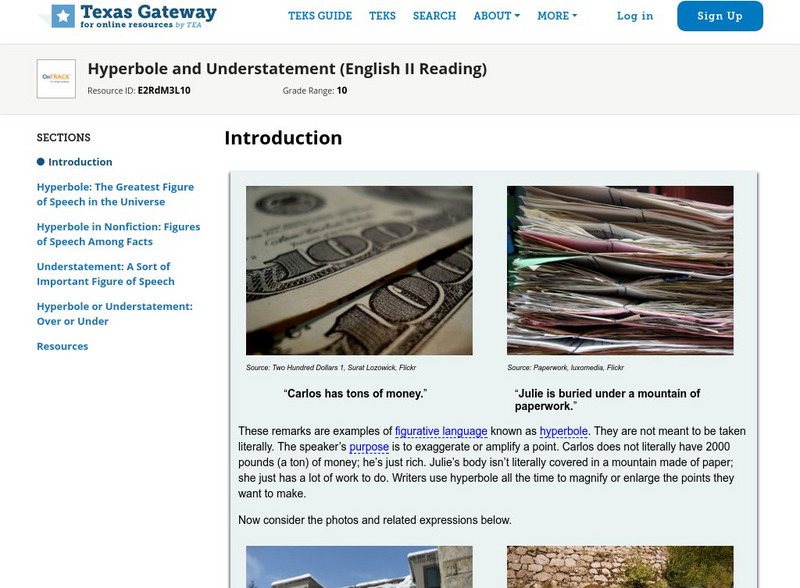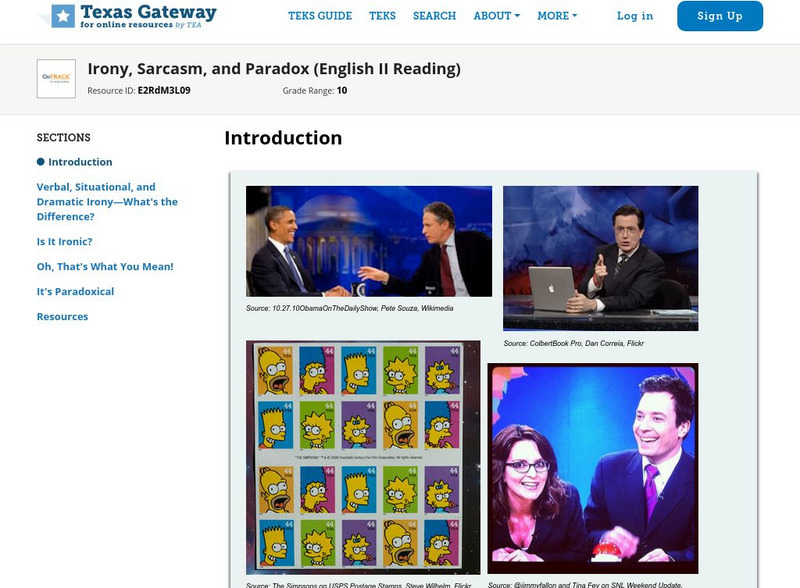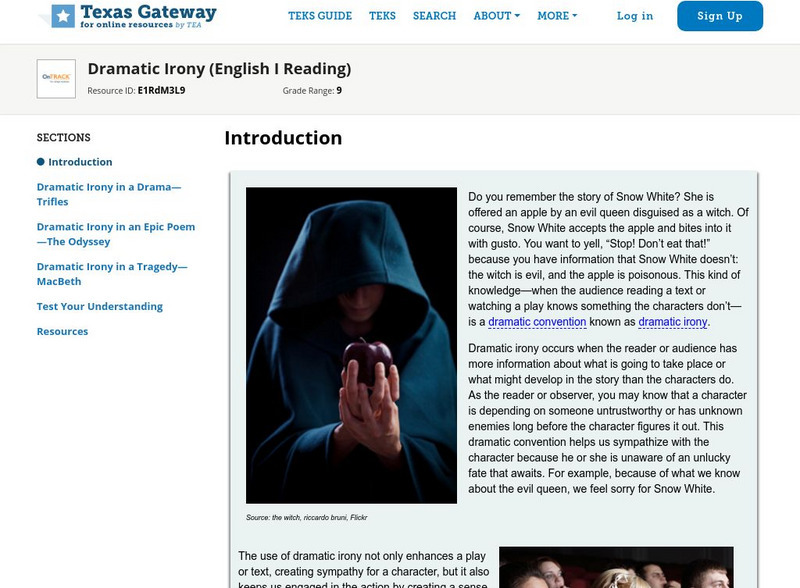Other
Brock University: Deconstruction Assumptions
Complex site from the Brock University on deconstruction and its many assumptions and premises. Very advanced treatment of deconstruction, not for the beginner.
Emory University
Emory University: Epitaph
A definition of "epitaph" in literary usage with some fine examples.
University of Victoria (Canada)
The U Vic Writer's Guide: Literary Term: Irony
This site from The UVic Writer's Guide provides an excellent description of the literary term "irony." Content includes a focus on dramatic irony, structural irony, and verbal irony.
University of Victoria (Canada)
The U Vic Writer's Guide: General Literary Terms
The University of Victoria's Writer's Guide includes an extensive list of literary and rhetorical terms. List can be displayed alphabetically.
Other
Bedford/st. Martin's: Lit Gloss
An encyclopedia of literary terms is included on this site. Students can choose different letters of the alphabet to search for literary terms.
Washington State University
Washington State University: Epigram/epigraph/ Epitaph/epithet
This site gives a definition of the word "epigram." It also includes a few examples of epigrams.
Sophia Learning
Sophia: Describing the Mood
Information that can be read or listened to that describes how to identify and write about the mood of a piece. Examples are provided using the story of "Tell Tale Heart" by Edgar Allen Poe.
Sophia Learning
Sophia: Humor in Writing
Eight slides introducing different types of humor in writing including irony, caricature, satire, wit, blunders, hyperbole, jokes, practical jokes, and puns.
Other
Ambrose Bierce's "The Devil's Dictionary"
Created in the image of the the book of the same name, these diabolical definitions are Bierce's satirical ridicule of the status quo. Many of these satirical definitions are accompanied by quotations.
Other
Chulalongkorn University: Elements of Fiction Irony
This site contains four different definitions of irony.
ReadWriteThink
Read Write Think: Exploring Satire With the Simpsons
Contains plans for three lessons that use the popular television show "The Simpsons" to teach about satire and satirical techniques. In addition to objectives and standards, this instructional plan contains links to PDF handouts and...
ReadWriteThink
Read Write Think: Exploring Satire With Shrek
The movie Shrek introduces the satirical techniques of exaggeration, incongruity, reversal, and parody. Students brainstorm fairy tale characteristics, identify satirical techniques, then create their own satirical versions of fairy tales.
ReadWriteThink
Read Write Think: Poetry: Varying Views of America
Lesson allows students to examine the various views of American perspective through studying three poems by diverse poets: "I Hear America Singing" by Walt Whitman, "I, Too, Sing America" by Langston Hughes, and "On the Pulse of Morning"...
Middlebury College
Middlebury College: Roman Satire
Middlebury College provides a very brief site describing the history of Roman Satire and some Roman writers, including Juvenal, Percius, and Horace.
Other
Teengagement: Targeted Intervention: Word Choice Shapes Meaning and Tone
In this lesson, students interpret how words are used in a literary text and examine how word choice affects meaning and tone. A sample analysis of a poem is presented, terms are defined, and question stems for assessment purposes are...
Texas Education Agency
Texas Gateway: Allusion (English Ii Reading)
You will be able to analyze the function of allusion in literary texts.
Texas Education Agency
Texas Gateway: Literary Text: Hyperbole and Understatement
[Accessible by TX Educators. Free Registration/Login Required] In this lesson, you will learn to recognize hyperbole and understatement in nonfiction.
Texas Education Agency
Texas Gateway: Literary Text: Irony, Sarcasm, and Paradox
[Accessible by TX Educators. Free Registration/Login Required] In this lesson, you will learn to evaluate the role of irony, paradox, and sarcasm in literary nonfiction such as speeches and essays. Take a look at the chart; it contains...
Texas Education Agency
Texas Gateway: Literary Text: Diction and Tone
This lesson deals primarily with diction and tone and how to recognize them in your reading. Tone is largely determined by diction or the word choices a writer makes. The process of choosing the right word involves denotation and...
Texas Education Agency
Texas Gateway: Dramatic Irony (English I Reading)
This lesson focuses on dramatic irony, when the reader or audience has more information about what is going to take place or what might develop in the story than the characters do.
Texas Education Agency
Texas Gateway: Irony, Sarcasm, Paradox (English I Reading)
[Accessible by TX Educators. Free Registration/Login Required] In this lesson, you will learn to identify and explain the purposes of irony and paradox in poetry. Both of these poetic devices are ways of saying one thing and meaning...
Blackdog Media
Classic Reader: How a Muzhik Fed Two Officials by Mikhail Yevgrafovich Saltykov
Classic Reader provides numerous classic short stories from famous authors. One work is "How a Muzhik Fed Two Officials," a story written by the Russian satirist from the 1800's, Mikhail Yevgrafovich Saltykov.
Rutgers University
Rutgers University: Glossary of Literary and Rhetorical Terms: Satire
A good definition of satire, with links to related definitions and literary terms.
British Library
British Library: Discovering Literature: Satire and Humour
Discover how writers of the 17th and 18th centuries used satire and humour to address issues around politics and power, inequality and class, gender and marriage - as well as to entertain readers and audiences.


